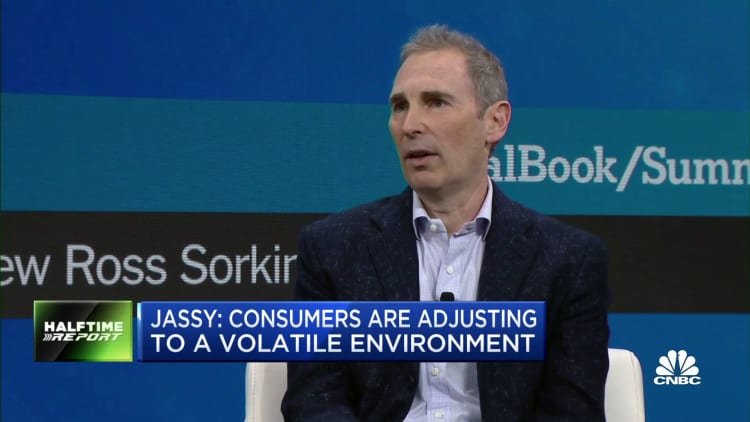[ad_1]
The regulator was concerned with Amazon’s dual role as both a marketplace and a competitor to merchants selling on its platform.
Nathan Stirk | Getty Images
Amazon on Tuesday agreed to make some significant changes to its business in Europe as part of a settlement of antitrust investigations that could have resulted in a hefty fine for the e-commerce titan.
The European Commission, the EU’s executive arm, announced Tuesday that Amazon had made a series of commitments to address allegations that the company was using independent sellers’ data to its advantage.
The regulator had expressed concerns with Amazon’s dual role as both a marketplace and a competitor to merchants selling on its platform. Amazon, for its part, says it is an enabler of small businesses in the region.
In November 2020, the Commission issued Amazon a statement of objections over its “systematic” use of non-public business data from independent sellers to benefit its own retail business.
It also opened a second investigation into claims that criteria set by Amazon for selecting featured merchants in its “buy box” tool and enabling sellers to offer products to users of its Prime membership program gave preferential treatment to Amazon’s retail business or sellers using its own delivery services.

On Tuesday, the Commission said that Amazon had made assurances that it would change some of those practices. One of the commitments was to stop using non-public data on independent sellers for its retail business or for selling branded goods and private label products.
The company also agreed to display a second buy box when there is a second offer that is different from the first on price or delivery, and to let Prime sellers choose any carrier for their logistics or delivery services.
The changes apply only to the European Economic Area. In Italy, Amazon has agreed separate legal remedies with the country’s competition regulator relating to the buy box and Prime. Amazon will have until June 2023 to implement the changes.
“Today’s decision sets the rules that Amazon will need to play by in the future instead of Amazon determining these rules for all players on its platform,” Margrethe Vestager, the EU’s competition chief, said in a speech Tuesday.
“With these new rules, competing independent retailers, carriers and European customers will have more opportunities and choice.”
If the company had been found guilty, it could have faced a fine worth up to 10% of its global annual revenues. For Amazon, a company that made $469.81 billion of revenue in 2021, that could have meant a record $47 billion penalty.
However, the EU may still fine Amazon 10% of its total annual turnover if it breaches the commitments, or a periodic penalty of 5% per day of daily turnover for each day of non-compliance.
Amazon said in a statement that it was “pleased that we have addressed the European Commission’s concerns and resolved these matters.”
“While we continue to disagree with several of the preliminary conclusions the European Commission made, we have engaged constructively to ensure that we can continue to serve customers across Europe and support the 225,000 European small and medium sized businesses selling through our stores,” an Amazon spokesperson told CNBC via email.
The development marks a subtle victory for the EU, which is pursuing seismic changes to American tech giants’ business models with its Digital Markets Act. The legislation, which entered into force last month, aims to prevent so-called “gatekeeper” firms from abusing their market position to harm smaller rivals.
It is already causing significant changes for some of these companies. Apple, for example, is reportedly working on changes that would allow users to “sideload” apps from the web, bypassing the App Store, to bring its business into compliance with the DMA.
[ad_2]






